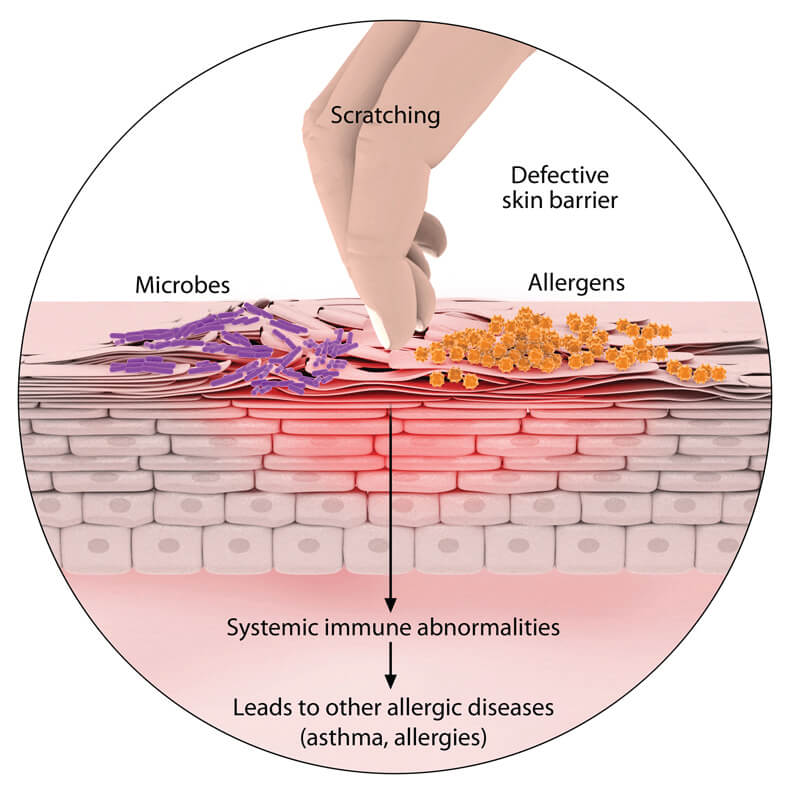
The exact cause of eczema, or atopic dermatitis, is unknown although it typically occurs in families with atopic diseases (atopic dermatitis, asthma and allergies) pointing to a genetic component. In the past few years, mutations in the gene for filaggrin protein which is important in building a healthy skin barrier have been described in some patients with eczema. These patients appear to have atopic dermatitis that is earlier in onset, more severe and persistent and associated with asthma and allergic sensitization. Environmental exposures are also thought to contribute, as the incidence of atopic dermatitis is increasing at a rate that cannot be explained by genetics alone. Patients can have specific or unique triggers that make their eczema flare and these include irritants, allergens, infectious agents and emotional factors.
Genetics and Eczema
Research suggests that genes are the determining causes of eczema and other atopic diseases. This means that you are more likely to have atopic dermatitis, food allergies, asthma and/or hayfever if your parents or other family members have ever had eczema.
These diseases may develop one after another over a period of years. This is called the "atopic march". Recognizing that a person with eczema is at a higher risk of developing one of these diseases is important for parents, patients and healthcare providers. Knowing that a child with a slight wheeze has had a history of atopic dermatitis, for example, makes it easier to diagnose the subtle onset of asthma.
Lack Certain Proteins
Recent studies have shown that some patients with eczema lack proteins that are important for a normal skin barrier. Allergens, irritants and bacterial toxins can penetrate the abnormal skin barrier and trigger an immune response.
Risk Factors
There are several risk factors for the atopic dermatitis that are not under a patient's control, including:
- A family history of the disease
- A personal history of allergic conditions, such as hay fever
- A personal history of asthma
- A personal history of food allergies
These conditions appear to be part of a series of immune disorders called the " atopic march." Over a period of years, a person may develop one and than another. Recognizing that a person with eczema is at a higher than normal risk of developing another of these conditions is important for parents, patients, and healthcare providers. Knowing that a patient with a slight wheeze has had a history of atopic dermatitis, for example, makes it easier to diagnose the subtle onset of asthma.